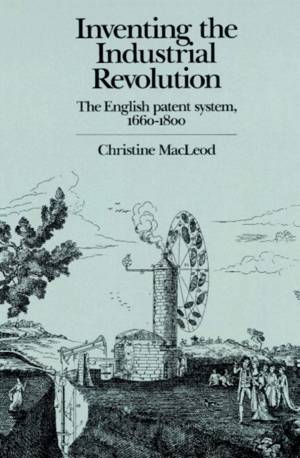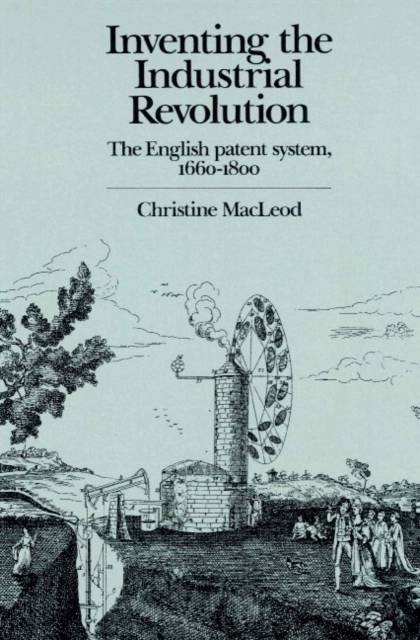
- Afhalen na 1 uur in een winkel met voorraad
- Gratis thuislevering in België vanaf € 30
- Ruim aanbod met 7 miljoen producten
- Afhalen na 1 uur in een winkel met voorraad
- Gratis thuislevering in België vanaf € 30
- Ruim aanbod met 7 miljoen producten
Zoeken
Inventing the Industrial Revolution
The English Patent System, 1660 1800
Christine MacLeod
Paperback | Engels
€ 74,95
+ 149 punten
Uitvoering
Omschrijving
This book examines the development of the English patent system and its relationship with technical change during the period between 1660 and 1800, when the patent system evolved from an instrument of royal patronage into one of commercial competition among the inventors and manufacturers of the Industrial Revolution. It analyses the legal and political framework within which patenting took place and gives an account of the motivations and fortunes of patentees, who obtained patents for a variety of purposes beyond the simple protection of an invention. It includes the first in-depth attempt to gauge the reliability of the patent statistics as a measure of inventive activity and technical change in the early part of the Industrial Revolution, and suggests that the distribution of patents is a better guide to the advance of capitalism than to the centres of inventive activity. It also queries the common assumption that the chief goal of inventors was to save labour, and examines contemporary criticism of the patent system in the light of the changing conceptualisation of invention among natural scientists and political economists.
Specificaties
Betrokkenen
- Auteur(s):
- Uitgeverij:
Inhoud
- Aantal bladzijden:
- 316
- Taal:
- Engels
Eigenschappen
- Productcode (EAN):
- 9780521893992
- Verschijningsdatum:
- 9/05/2002
- Uitvoering:
- Paperback
- Formaat:
- Trade paperback (VS)
- Afmetingen:
- 154 mm x 230 mm
- Gewicht:
- 467 g

Alleen bij Standaard Boekhandel
+ 149 punten op je klantenkaart van Standaard Boekhandel
Beoordelingen
We publiceren alleen reviews die voldoen aan de voorwaarden voor reviews. Bekijk onze voorwaarden voor reviews.











